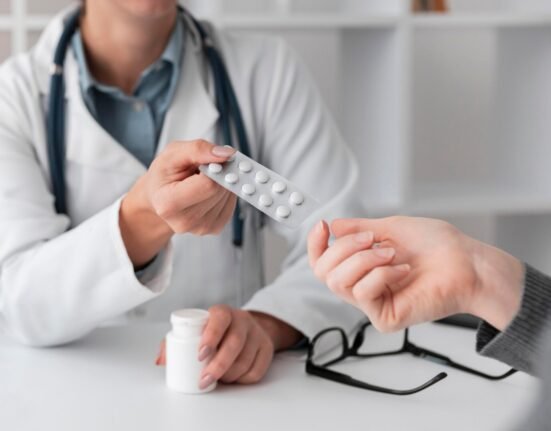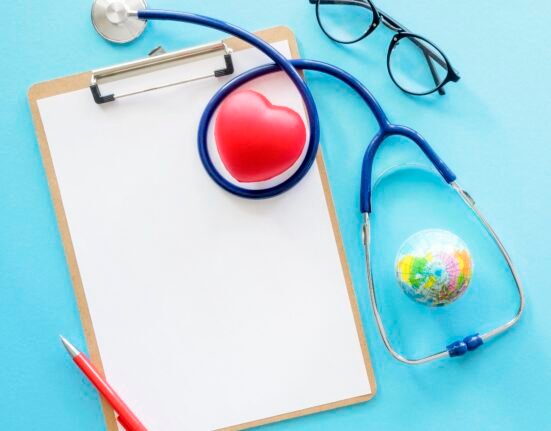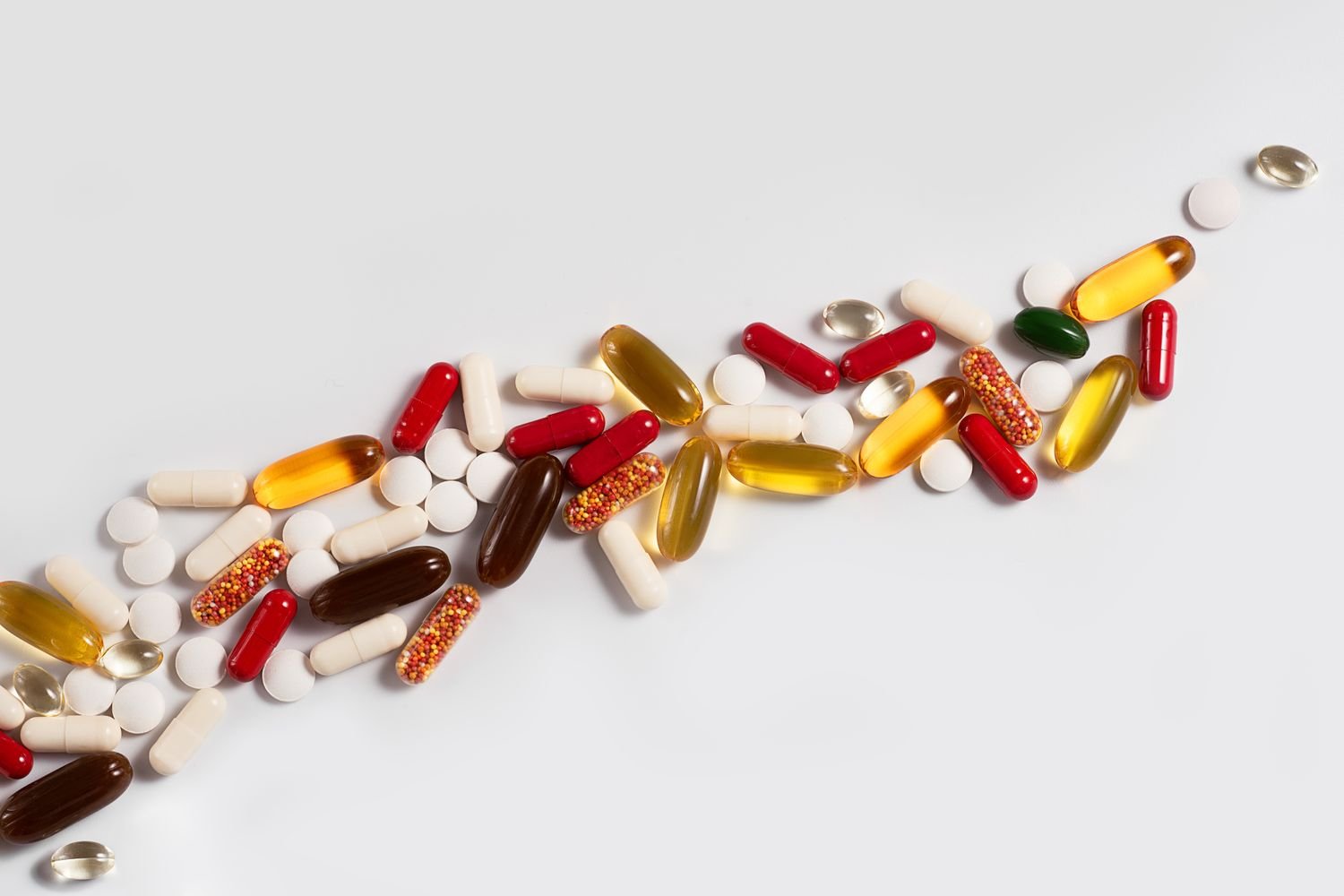Eating a healthy, balanced diet and exercising regularly are the two most important factors for healthy aging.
Certain supplements can also help. We asked our chief medical officer and lifestyle medicine expert, Sohaib Imtiaz, MD, to share the supplement stack he recommends for men to stay sharp and feel their best.
1. Creatine
- Recommended daily amount: 4-5 grams
Creatine is a natural chemical in the body, meat, and seafood. A creatine supplement can promote muscle growth and boost performance while exercising. Researchers are also studying whether creatine can boost brain health and cognition.
“I find that on days when I’m tired and take creatine, I feel mentally sharper,” said Imtiaz.
2. Vitamin D
- Recommended daily amount: 15 to 20 mcg for adults
Imtiaz said taking a vitamin D supplement is non-negotiable for him, and most Americans consume less than the recommended amount of this essential nutrient.
Along with calcium, vitamin D is necessary for building and maintaining strong bones. Without enough vitamin D, calcium cannot be absorbed properly in the body.
3. Omega-3 Fatty Acids
- Recommended daily amount: 1.1 to 1.6 grams
Omega-3s are another essential supplement for Imtiaz, who said he’s been taking them since he was a teenager. Some evidence shows that omega-3s could help protect your heart, lower triglycerides, prevent stroke, and support cognition.
Omega-3s are found in foods like salmon, tuna, and other seafood, as well as plant-based foods like flaxseeds and walnuts. However, not all omega-3s are the same. Flaxseed oil contains alpha-linolenic acid (ALA), a form of omega-3 that the body must convert into EPA and DHA—the types with the most evidence for supporting heart and brain health.
Imitiaz recommends fish oil supplements, which provide EPA and DHA directly, over flaxseed oil for better absorption.
“There is very strong evidence that fish oil is good for your brain health,” Imtiaz said.
4. Urolithin
- Recommended daily amount: No official recommendation, but studies have used doses ranging from 10 to 1,000 mg a day.
Urolithin is a metabolite that may boost muscle health and performance. When you eat foods like pomegranate or walnuts, your gut converts certain acids into urolithin.
However, some people’s gut microbiota do not convert the food compounds into urolithin as efficiently, or at all. “That’s why you should supplement, since everyone’s body can transform it that way,” Imtiaz said.
Urolithin may also have some antioxidant and antiaging properties, such as supporting cell turnover and removing damaged mitochondria. “That’s good for energy production and muscle strength, especially as you get older,” he added.
5. Alpha GPC
- Daily recommended amount: No official recommendation. Imtiaz suggested 300 mg a day.
Alpha GPC is a chemical made in the body from choline, which is naturally found in eggs, said Imtiaz.
“It boosts acetylcholine, which is a neurotransmitter in the brain that’s good for memory and learning,” said Imtiaz. “My supplement stack is geared toward cognitive health, and as we age, choline is really important for brain repair mechanisms, and I do feel alpha GPC helps me.”
He added that it can also help release growth hormones, which are good for muscle building. Alpha GPC has also been used in Europe for dementia and stroke recovery.
6. Saffron
- Daily recommended amount: No official recommendation. Imtiaz suggested taking 28 to 30 mg a day.
Saffron is great for serotonin and mood support, as well as age-related cognitive decline, said Imtiaz. “It’s basically the opposite of stress for the brain,” he added.
A recent study looked at saffron’s antidepressant effects compared to a low-dose SSRI, and it found they reduced symptoms equally, said Imtiaz.
Some data also suggest that it can support eye health and has antioxidant and anti-inflammatory properties that can mitigate the aging process.
What This Means For You
Taking supplements is just one way to promote healthy aging, but needs to be done in combination with a healthy lifestyle, such as getting ample sleep, eating a balanced diet and exercising regularly. Talk with your doctor before adding any supplements to your routine.









:max_bytes(150000):strip_icc()/Allison_Tsai_Bio-76a3735a6a844904bd4747a61adc8477.jpg)




Leave feedback about this